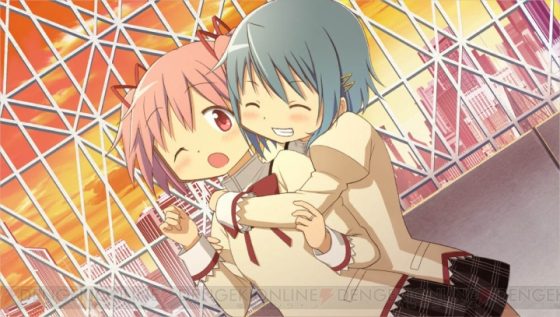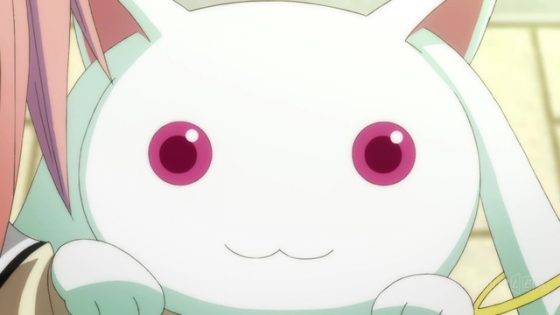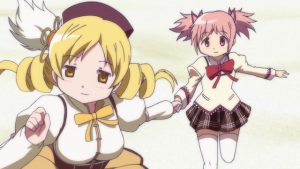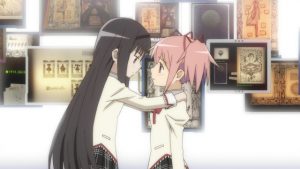
In the magical girl genre, mascot characters provide both emotional support and vital lessons for the cast. By imparting valuable lessons, mascots can guide characters towards a hopeful future.
However, Madoka Magica transforms that relationship. A story once meant to inspire children has now been changed. Walls have been placed against the characters’ backs. The only path is to fall forward.
Before we discuss the ending, it’s important to understand how the characters got there--how the characters’ emotional and mental states are formed. Thus, this article will give context about the mascot/mentor and how they lay a path for their students.
Context: An Overview of the Mascot/Mentor Figure
Within the magical girl genre, a common archetype is the mascot character. Doubling as a mentor, the mascot serves a functional purpose: to guide those who want to become magical girls.
Several examples include Cerberus/Kero from Cardcaptor Sakura, Luna and Artemis from Sailor Moon, and Mepple and Mipple from Pretty Cure. All of these characters provide emotional support and training to wield magic.
This parallels the mentor figure in a Hero’s Journey (a common story structure). Both the mascot character and the mentor prepare the next generation for the road ahead--an inward and outward journey.
By providing advice and encouragement, mascot characters impart values and lessons for adulthood; they teach magic, but they also teach responsibility. This relationship is an unwritten contract, one where the girl places faith in their guide, and the guide knows the way. Together, their bond creates meaning, a validation of one another. In magical girl stories, that bond is the reward--it’s true magic.
If magical girls reflect adolescence, then magic is the key to that development. It must be wielded with thoughtfulness and consideration. It must never be abused--used irresponsibly. If magic is development, then it is both mental and emotional, a growth that is nurtured through experience and guidance.
A Guide with No Direction: the Indifferent “Mascot”
In Madoka Magica, role models and mentors are removed through death or their exclusion. The world changes around the cast. The gates that once kept them safe are to their backs. Their happiest moments are barred forever.
Watching from above is Kyubey. As a “mascot character,” his indifference subverts the unwritten contract. He bestows magic without a warning, power without responsibility, and lessons without meaning. He is a guide with no direction.
Thus, when characters venture outwards, they get lost--when characters need help, there is none. Kyubey’s apathy does not absolve him. His indifference is cruel negligence.
Just as his predecessors, Kyubey serves a functional purpose. However, unlike them, his purpose isn’t to guide but to harvest. He is an entity known as an incubator, and just like his namesake, he is an “apparatus used to hatch eggs under controlled conditions.” Those “controlled conditions” aren’t just within Mitakihara City, but the world itself.
The Importance of Knowledge: Imparting Meaning Through Lessons
In episode 11, Madoka asks Kyubey, “After all the time you’ve spent watching over those girls… do you really feel nothing for them at all? Did you never try to understand how much they were suffering?”
He responds, “If we had the capacity to comprehend such things, we wouldn’t have had to come to your planet... In our society, the phenomenon known as ‘emotion’ is only considered a mental disease.”
This discussion has several layers. It enlightens us on a visual trend; as the series develops, Kyubey’s physical position starts low, then increases until he’s eye-level. By the end of the series, this gradual elevation makes it so he’s above characters. In the mentioned scene, not only does his shadow impose itself over Madoka, his position on the bookshelf makes it so he looks down on her.
His elevation lets him see the bigger picture; he knows how the universe works. His knowledge puts him in a position of power, and he exerts it over the innocent. Instead of nurturing growth, he uses knowledge to keep people below him. This is an abuse of power, a subversion of his “mentor” position.
This contrasts with the typical mascot/mentor character. A mentor figure does more than gift knowledge; they impart meaning. Mentors craft potential out of their pupils. They create a relationship where one didn’t exist before, fashioning a new identity (student). For children, their potential is infinite. They can grow into any number of things--as long as they have knowledge.
Mascots/mentors elevate others. They don’t abuse their power, but use it responsibly, teaching through example. By nurturing a child’s potential, the mentor ensures their students will do more than survive. They will lay a path towards the future.
Final Thoughts

Mascots/mentors guide their students forward. Nurturing their growth with care. Their students embody valuable lessons, turning into role models. By teaching through their actions, they inspire the next generation to do the same. For the next article, I will talk about how Kyubey’s “lessons” are embodied by a certain “student” and how her contract leaves her changed forever.



